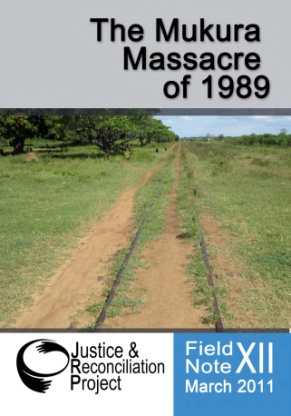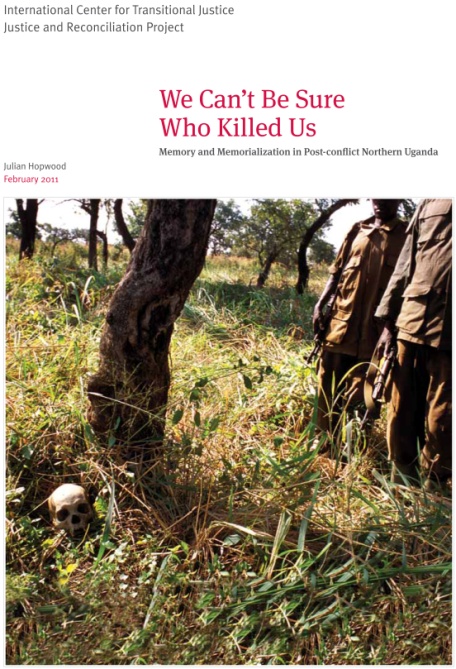“Radio shows target LRA fighters,” Institute for War and Peace Reporting, 10 March 2011
http://iwpr.net/report-news/radio-shows-target-lra-fighters
By Nancy Sai
As calls mount to put an end to the atrocities still being committed by Ugandan rebels, radio is increasingly playing a role in getting some of these fighters to voluntarily return home.
Despite International Criminal Court arrest warrants for the leader of the Lord’s Resistance Army, Joseph Kony, and his senior commanders, the rebel force continues to wreak havoc in the Democratic Republic of Congo, DRC, the Central African Republic, CAR, and southern Sudan.
The 2008 Juba Peace Process attempted to bring an end to the LRA insurgency, but Kony refused to sign the agreement, which led to forces from South Sudan, DRC and Uganda attacking LRA bases in what was known as Operation Lightening Thunder.
This sparked a new wave of bloodletting by the rebels which shows little sign of ending. Last December, Human Rights Watch claims that the LRA massacred more than 300 people in the DRC alone.
In 2010, Barrack Obama became the first US president to develop a comprehensive strategy aimed at ending the LRA’s 24-year reign of terror.
The strategy is designed to increase protection of civilians, neutralise Kony and his senior commanders, promote the demobilisation and reintegration of LRA fighters and step up humanitarian assistance to communities affected by rebel violence.
But as efforts to disarm the LRA proceed, Paul Ronan, co-founder and advocacy director at Resolve, a United States-based group campaigning for an end to LRA violence, says both a military and non-military tactics are needed to minimise the LRA threat.
According to him, as civilians are protected and LRA commanders are apprehended, a strategy that reaches out to the LRA rank and file to lay down their weapons is also important.
“Radio programmes are one of the best methods to encourage LRA fighters and commanders to stop fighting and defect from the LRA,” he said.
Uganda’s Radio Mega FM has long been running a show, Dwog Paco ( Come Back Home), on Thursday nights, calling for LRA soldiers to return to their villages and towns. The same show is aired by the state-owned Uganda Broadcasting Corporation, UBC, on Sunday nights.
The host of Dwog Paco, Oreyema Lachambel, says one way the programme tries to persuade rebels to come back is by getting comrades who have already done so to appear on air. This, he says, assures those in the bush that their return home will be welcomed.
Conciliation Resources, an international peace-building NGO, conducted a study on the return process for LRA commanders. The study interviewed 39 LRA returnees in northern Uganda, and 35 of them cited radio programmes, like Dwog Paco, to have had the most influence on their decision to come back.
Lachambel says that LRA fighters are more receptive to the programme’s urgings because, as Kony moves deeper and deeper into the bush, his men are having to put up with harsher conditions and growing isolation.
“If they listen to the programme, it makes them homesick,” he said. “We tell them the best way to find their way back.”
But while campaigners have welcomed this kind of broadcasting, many feel that something else is needed.
“On its own it is not enough,” said Kennedy Tumutegyereize, the director of East and Central Africa programmes at Conciliation Resources. “It can [only] play a facilitating role.”
Ojok Boniface, programme coordinator for Uganda’s Justice and Reconciliation Project, JRP, says Dwog Paco has served a valuable role in persuading some LRA fighters to return, but doesn’t address the problems that arise when ex-fighters have to confront their victims. Northern Uganda is facing “a dilemma of how to handle accountability and reconciliation”, he said.
His organisation encourages traditional justice methods like the mato oput, a ritual carried out by the Acholi tribe for reconciliation purposes, which promotes dialogue between LRA offenders and the communities they terrorised.
“We are now more concerned about how to unite victims and perpetrators of conflict in the spirit of justice and accountability for crimes committed,” he said. “We use radio programmes to ensure that the design and implementation of transitional justice programmes resonate within communities affected by the LRA conflict.”
The JRP disseminates information on transitional justice issues through Radio Mega’s Te Yat programme. Te Yat, which can be translated as “under the tree”, highlights the tradition of discussing community-related issues under large shady trees. JRP also works with Radio Mega to ensure dialogue on justice, reconciliation and community reactions to it feature on the Te Yat programme.
Meanwhile, a programme, similar to Dwog Paco, is launching in Sudan.
Philip Mbugo, who is behind the launch, said, “The LRA problem is dragging on” and the radio show is part of a collective effort to “bring peace and stability to the community”.
The radio programme, will air on southern Sudan’s Yambio FM. In addition to persuading LRA soldiers to return home, it will educate listeners about accepting ex-LRA returnees into their communities and participating in peace-building efforts.
While Uganda’s radio programme has been criticised for not reaching LRA fighters in remote areas, within the CAR and DRC, Mbugo insists that his show will do the job. He says most listeners in CAR will receive a weak signal, but insists a signal booster will help eliminate this problem.
“It will be powerful to cover most of the areas where the LRA are moving [around],” he said.
Nancy Sai is an IWPR-trained journalist.





 On March 4th, JRP and the International Center for Transitional Justice (ICTJ), with support from the Austrian Development Cooperation, will launch their new joint report, We Can’t Be Sure Who Killed Us: Memory and Memorialization in Post-Conflict Northern Uganda.
On March 4th, JRP and the International Center for Transitional Justice (ICTJ), with support from the Austrian Development Cooperation, will launch their new joint report, We Can’t Be Sure Who Killed Us: Memory and Memorialization in Post-Conflict Northern Uganda.